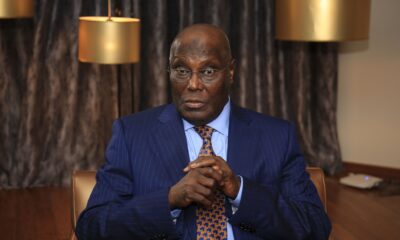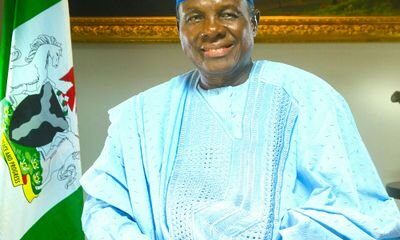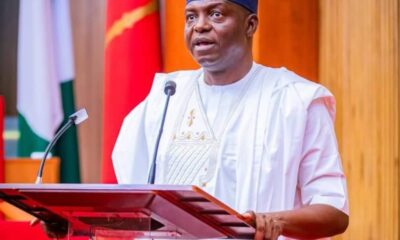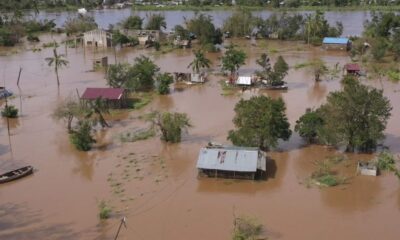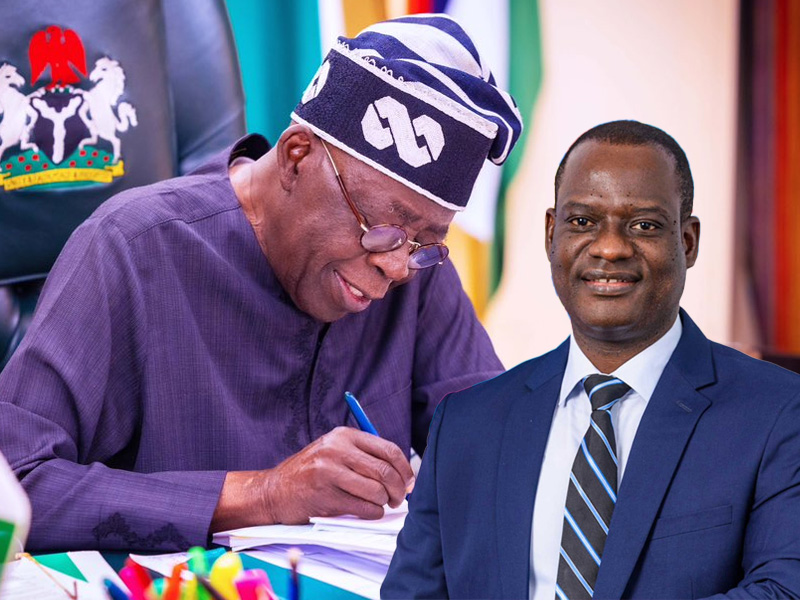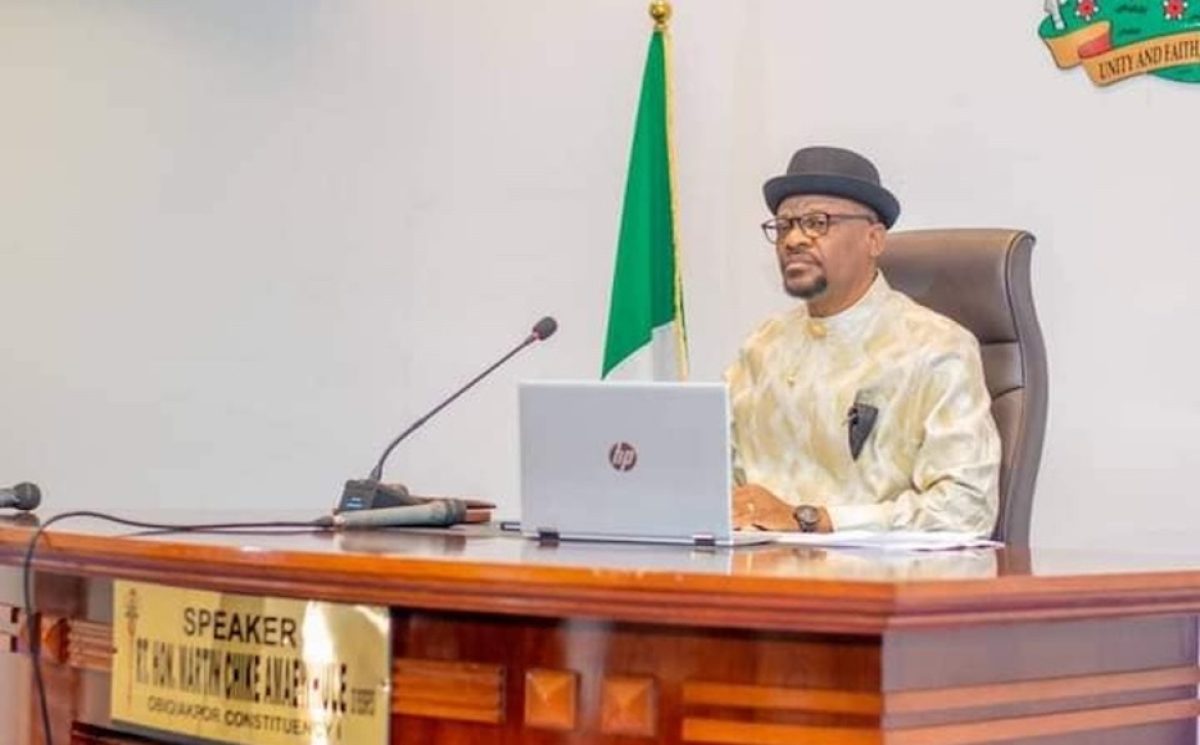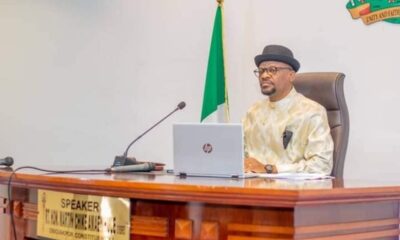The Department of State Services has arrested five security operatives in connection with events surrounding the return of former Kaduna State Governor, Nasir El-Rufai, to Nigeria from Egypt on February 12, 2026.
Those arrested are: Ayuba Yakubu (ASP), a police officer; Murtala Inuwa of the DSS; Najeeb Murtala (ASI) of the Nigeria Immigration Service; Musa Adamu of Aviation Security (AVSEC); and Salihu Victor of AVSEC.
The arrests followed a joint investigation conducted by the DSS, the Nigeria Immigration Service, the Nigeria Customs Service, and the Federal Ministry of Aviation.
The development comes as the fundamental rights enforcement suit filed by El-Rufai against the Independent Corrupt Practices and Other Related Offences Commission, and others, was stalled at the Federal High Court in Abuja due to the absence of counsel for the respondents.
On February 12, operatives of the DSS reportedly attempted to arrest El-Rufai upon his arrival at the Nnamdi Azikiwe International Airport, Abuja, but were unsuccessful.
Spokesperson to the former governor, Muyiwa Adekeye, disclosed that security operatives allegedly seized El-Rufai’s international passport during the incident.
In a post on X, Adekeye stated that the former governor declined to accompany the operatives without a formal invitation, after which his passport was taken from an aide.
Three days after the airport incident, El-Rufai honoured an invitation by the Economic and Financial Crimes Commission.
He has remained in the custody of the ICPC since his release by the EFCC.
According to findings of the investigation made available by one of the agencies on Tuesday, the officers allegedly confessed to receiving bribes to facilitate unauthorised entry into restricted areas of the airport and to obstruct lawful security operations.
The report read: “At the end of a joint investigation by the Department of State Services, the Nigeria Immigration Service, the Nigeria Customs Service and the Federal Ministry of Aviation, five officers have been detained.
They are: (i) Ayuba YAKUBU (ASP) – POLICE, (ii) Murtala Inuwa – DSS, (iii) Najeeb Murtala (ASI) – NIS, (iv) Musa Adamu – Aviation Security (AVSEC) and (v) Salihu Victor – AVSEC.”
The service said the five officers had been handed over to the Independent Corrupt Practices and Other Related Offences Commission for prosecution.
Meanwhile, other personnel from the NIS and NCS whose involvement was found to be non-criminal, but who allegedly abused their uniforms to facilitate unauthorised access, would face administrative sanctions.
“They have all confessed to receiving bribes to facilitate unauthorised entry into Restricted Areas, to obstruct lawful security operations in an unprecedented manner.
“They have been handed over to the Independent Corrupt Practices and Other Related Offences Commission for prosecution.
“Others from NIS and NCS whose involvement is not criminal; that is, did not receive a bribe, but abused their uniforms to facilitate unauthorised access, will face administrative action,” the report added.
Rights suit hangs
In the N1bn rights suit, marked FHC/ABJ/CS/345/2026, before Justice Joyce Abdulmalik, El-Rufai was seeking damages over what he described as an unlawful search of his Abuja residence.
When the matter was called, only Ubong Akpan appeared in court for the applicant. However, there was no representation for the respondents.
Akpan informed the court that although the case was slated for mention, the respondents had yet to be served with the court processes.
He, therefore, sought an adjournment to enable proper service.
Justice Abdulmalik subsequently adjourned the matter until March 11 for further mention.
El-Rufai had dragged the ICPC, the Chief Magistrate of the Magistrate’s Court of the Federal Capital Territory, the Inspector-General of Police, and the Attorney-General of the Federation to court as 1st to 4th respondents, respectively.
In the originating motion dated and filed on February 20 by his lead counsel, Oluwole Iyamu (SAN), the former governor is praying the court to declare that the search warrant issued on February 4 by the Chief Magistrate of the FCT Magistrate’s Court authorising the search and seizure at his residence is invalid, null and void.
He is also asking the court to hold that the warrant lacked particularity, contained material drafting errors, was ambiguous in its execution parameters, overbroad in scope and unsupported by probable cause, thereby amounting to an unlawful and unreasonable search contrary to Section 37 of the Constitution.
The applicant further prayed the court to declare that the invasion and search of his residence at House 12, Mambilla Street, Aso Drive, Abuja, on February 19 at about 2 pm by operatives of the ICPC and the police constituted a gross violation of his fundamental rights.
According to him, the action breached his rights to the dignity of the human person, personal liberty, fair hearing and privacy as guaranteed under Sections 34, 35, 36 and 37 of the 1999 Constitution.
El-Rufai also urged the court to declare that any evidence obtained pursuant to the allegedly invalid warrant is inadmissible in any proceedings against him, having been procured in breach of constitutional safeguards.
He is seeking an order restraining the respondents and their agents from further relying on, using or tendering any evidence or items seized during the search in any investigation, prosecution or proceedings involving him.
The former governor further asked the court to direct the ICPC and the Inspector-General of Police to immediately return all items seized from his residence, alongside a detailed inventory.
He is equally seeking N1bn as general, exemplary and aggravated damages.
The breakdown of the claim includes N300m as compensatory damages for psychological trauma, emotional distress and loss of personal security; N400m as exemplary damages to deter future misconduct by law enforcement agencies; and N300m as aggravated damages for what he described as the malicious, high-handed and oppressive conduct of the respondents.
He also claimed N100m as the cost of filing the suit, including legal fees and associated expenses.
Iyamu maintained that the execution of the warrant on February 19 resulted in an unlawful invasion of his client’s residence and inflicted humiliation and distress.
El-Rufai’s wife mocks ICPC
Wife of ex-Governor El-Rufai, Hadiza, mocked claims by the ICPC that wiretapping equipment was recovered from their Abuja residence.
In a post on X on Tuesday, she reacted to media reports quoting the ICPC as saying electronic devices capable of tapping conversations were seized during a search of their property.
“You forgot to mention that you also took away my bank tokens.
“I swear to God, they are not wiretapping equipment,” she wrote.
The post quoted a Monday statement by her son, Mohammed El-Rufai, who represents Kaduna North Federal Constituency, describing the claims as false and politically motivated, insisting that no “sophisticated tapping equipment” was seized during the search.
The ICPC had, in court filings before the Federal Capital Territory High Court, listed documents and electronic devices it said were recovered from the former governor’s Abuja home while urging the court to dismiss his N1bn fundamental rights enforcement suit.
The commission maintained that its operatives acted lawfully under a search warrant issued on February 18 and executed on February 19 between 1:37 pm and 3:56 pm at 12 Mambilla Street, Asokoro, Abuja.
Earlier in February, El-Rufai had alleged that someone tapped the phone of the National Security Adviser, Nuhu Ribadu, allowing him to overhear a conversation in which the NSA allegedly ordered his arrest.
He acknowledged such an action would be illegal but claimed government agencies sometimes engage in similar practices without court orders.



